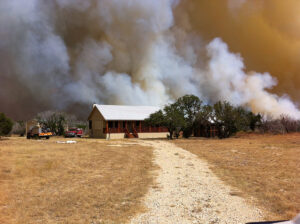Getting Involved with Your Local Responders
- Posted by Rebecca Gimenez Husted, PhD
I will just start with, “There are some places that you do not want your name to show up. I can think of several, but one of those would be the Journal of Trauma.” Remember, we teach emergency responders about large animals and especially horses, and we have to explain how dangerous they can be. So I am constantly keeping up with the latest injury statistics and scientific information related to keeping people safe.
Why would I bring up the Journal of Trauma? Well, there are a plethora of titles there that I would not want attached to my headstone. Fortunately, the name of the actual injured party never appears in these studies, but I can imagine that most of us wouldn’t want to be involved in any of these scenarios… in any form. What about professional emergency responders that do not handle horses every day? How would they fare in handling horses? Let’s look at our injury statistics for a minute:
For example, read “Blunt Bovine and Equine Trauma” from 1986. The overview of the journal article reads “During the past six years, 134 patients were admitted as the result of bovine (cow) and equine (horse) trauma. The mechanism of injury was fall from horse in 45 patients, animal assault in 42, animal kick in 39, and animal-drawn vehicle accident in eight. One hundred seventeen operative procedures were performed.” Hmm… Animal assault? That was not featured in the happy cow videos… nor the cantering into the sunset trailer on the movies.
How about “Lethal Horse Riding Injuries” from 1989: Part of the abstract reads “From the years 1969 through 1982 a series of 53 lethal riding injuries is analyzed with reference to the rider, the horse, and the environment. Craniocerebral injuries dominate in this series, indicating the importance of adequately protecting helmets
Create a free account with TheHorse.com to view this content.
TheHorse.com is home to thousands of free articles about horse health care. In order to access some of our exclusive free content, you must be signed into TheHorse.com.
Start your free account today!
Already have an account?
and continue reading.

Written by:
Rebecca Gimenez Husted, PhD
Related Articles
Stay on top of the most recent Horse Health news with
















